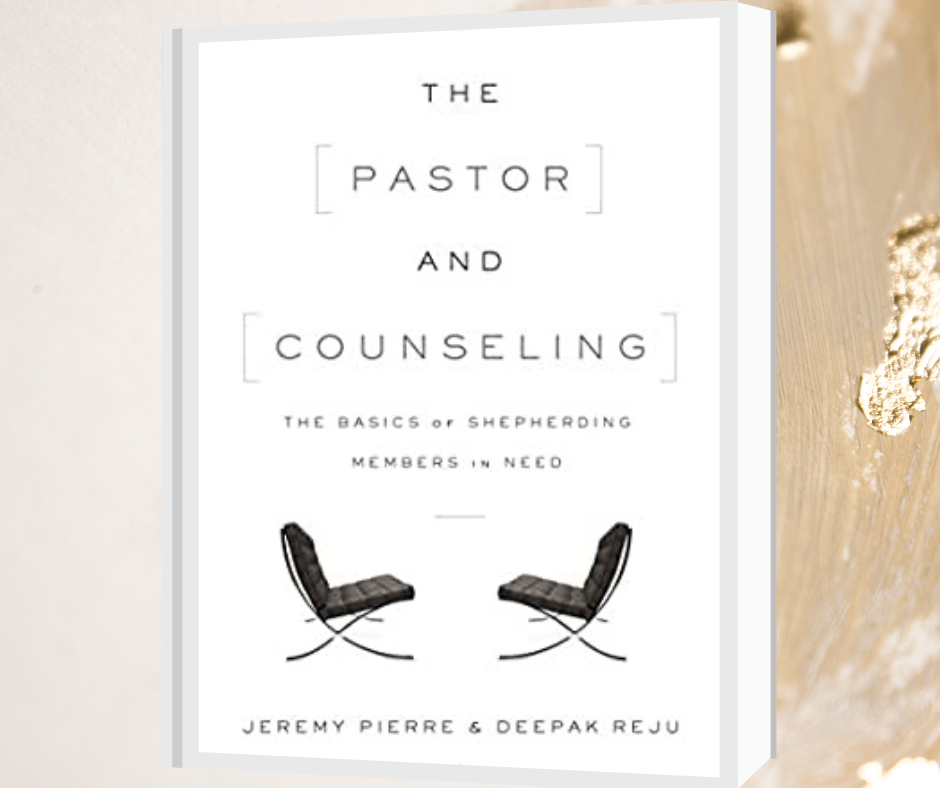Book Reviews
The Pastor and Counseling: The Basics of Shepherding Members in Need, by Jeremy Pierre and Deepak Reju | Review by Rosa Byler

Counseling, whether called by that title or not, has always been a pastoral responsibility. Even older secular works suggest that troubled people talk to a pastor (or priest or rabbi, for the multi-culturally attuned).
However, today’s surge of renewed interest in biblical counseling and the abundance of books on the subject can make pastors feel overwhelmed and under-educated. It is a temptation, say the authors of this book, to aim for a “pulpit-only ministry”: preaching the Word and leaving counseling to others in the church.
Both Pierre and Reju have learned (from the Bible) and observed (from personal experience) that while preaching is the primary ministry of the Word, it is not the only one. They define the pastoral calling as shepherding and making disciples, which often includes counseling people through such difficulties as depression, anger, adultery, eating disorders, marriage problems, cancer, and more. The Pastor and Counseling is their attempt to condense principles and practices into one convenient resource. The book is divided into three sections explaining the concept, the process, and the context of pastoral counseling.
The concept of counseling includes an overview of what Christian counseling is (presenting the gospel and helping people grow in Christlikeness), how it is initiated (by people themselves or by their concerned friends/pastors), and a basic method to follow (listen, consider, and speak. In addition to more farsighted objectives, the authors add practical tips such as staying in sight of others for accountability, positioning clocks intentionally to maintain awareness of time, and providing boxes of tissues.
The process section is lengthier, showing how the concept develops in the first and subsequent meetings. Establishing a relational connection, listening in a way that “helpfully directs the conversation (63),” and giving hope from the gospel are all important for the initial session. To expose unbiblical thinking, assign relevant Scriptures to read, study, and discuss. The authors stress the importance of the pastor himself having a sound hermeneutic; otherwise, he is like “a blind man with a big gun (64).” Assorted “redemptive strategies” are evaluated (“not distinct steps, but rather a sampling of angles [78]” that may help move people toward resolution). One chapter describes the final meeting; the counselor should know how to conclude as well as when.
The last two chapters of the book treat the context of counseling.
“Never labor alone,” advise the authors (103). Your whole church should be growing into an intentional “culture of discipleship,” a place where anonymity and nominal Christianity are constantly being challenged.
How does a pastor help shape this type of culture? The authors suggest not only training your church members in counseling (several resources are recommended) but modeling it in front of them. When you counsel, “make it a priority to invite others into the counseling room (116)”--family members, friends, or mature members of the church who already know something about the issues being dealt with.
Pastors can also benefit from medical and professional resources in the surrounding community. Illegal behaviors need to be reported. Local Christian professionals have an experience that individual pastors may lack in specific areas. And while medicine cannot cure the sinful soul, some situations are needlessly complicated by physical disorders. The pastor is cautioned to stay involved and in touch with outside counseling and other courses of action, since a “Christian counselor” with weak or unbiblical anthropology can do more damage than one who makes no profession of faith.
This book is well-organized, concise, and simply written. The authors’ view of Scripture is high; their goal is to build in pastors the confidence that “Scripture has everything you need to address a person pastorally, no matter how complex the problem (129-130).” As the title suggests, the book is a basic primer. It gives enough instruction to be helpful immediately while bringing the reader into hopeful awareness of the limitless power of the Word of God. Recommended for pastors and anyone involved in helping people!